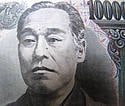NZD/USD Exchange rate
Editors’ Picks
AUD/USD stalls ahead of Reserve Bank of Australia’s decision

The Australian Dollar registered minuscule gains compared to the US Dollar as traders braced for the Reserve Bank of Australia monetary policy meeting. A scarce economic docket in the United States and a bank holiday in the UK were the main drivers behind the “anemic” AUD/USD price action. The pair trades around 0.6624.
USD/JPY extends recovery above 154.00, focus on Fedspeak

The USD/JPY pair trades on a stronger note around 154.10 on Tuesday during the early Asian trading hours. The recovery of the pair is supported by the modest rebound of US Dollar to 105.10 after bouncing off three-week lows.
Gold rises as US job slowdown dampens Treasury yields

Gold price rallied close to 1% on Monday, late in the North American session, bolstered by an improvement in risk appetite due to increased bets that the US Federal Reserve might begin to ease policy sooner than foreseen. The XAU/USD trades at around $2,320 after bouncing off daily lows of $2,291.
Ethereum traders show uncertainty following huge whale sale, Robinhood Crypto Wells notice

Ethereum holdings on centralized exchanges continue to decline despite recent whale sales. With Robinhood Crypto as the latest recipient of the SEC's Wells notice, Ethereum spot ETFs look more unlikely.
RBA expected to leave key interest rate on hold as inflation lingers

Interest rate in Australia will likely stay unchanged at 4.35%. Reserve Bank of Australia Governor Michele Bullock to keep her options open. Australian Dollar bullish case to be supported by a hawkish RBA.
Majors
Cryptocurrencies
Signatures
NZD/USD, THE “KIWI”
The NZD/USD currency pair, also called the “Kiwi”, tells the trader how many US dollars (the quote currency) are needed to purchase one New Zealand dollar (the base currency). Together with the Australian Dollar and the Canadian Dollar, the NZD is a commodity currency, that is a currency whose country's exports are largely comprised of raw materials (precious metals, oil, agriculture, etc.).
Along with the Australian Dollar, the NZD has been for many years a traditional vehicle for carry traders, which has made this currency also very sensitive to changes in interest rates.
HISTORIC HIGHS AND LOWS FOR NZD/USD
- All-time records: Max : 1.49 on 5/11/1973 - Min: 0.3962 on 16/10/2000
- Last 5 years: 0.7737 on 27/04/2015 - Min: 0.65794 on 20/08/2015
* Data as of February 2020
ASSETS THAT INFLUENCE NZD/USD THE MOST
- Currencies: AUD, CNY and YEN (Australia, China and Japan are important regional partners of New Zealand). This group also includes the following currency pairs: EUR/USD, GBP/USD, USD/JPY, AUD/USD, USD/CHF, USD/CAD, GBP/JPY and EUR/JPY
- Commodities: First of, coal. New Zealand has extensive coal resources: coal accounts for about 10% of New Zealand’s primary energy (excluding transport fuels). Other important commodities are Silver and Iron Ore.
- Bonds: GNZGB10 (New Zealand Govt Bond 10 Year) and AGB (debt securities issued by the Australian Government) and T-NOTE 10Y (10 year United States Treasury note).
- Indices: NZX (New Zealand Exchange), ASX (Australian Securities Exchange) and Nikkei 225 (a stock market index for the Tokyo Stock Exchange).
ORGANIZATIONS, PEOPLE AND ECONOMIC DATA THAT INFLUENCE NZD/USD
The organizations and people that affect the most the moves of the NZD/USD pair are:
- Reserve Bank of New Zealand (RBNZ), the central bank of that country. It was established in 1934 and is constituted under the Reserve Bank of New Zealand Act 1989. The Governor of the Reserve Bank is responsible for New Zealand's currency and operating monetary policy. The Bank's current Governor is Adrian Orr.
- New Zealand Government (whose Prime Minister is Jacinda Ardern) and its Ministry of Business, Innovation and Employment (MBIE) that implement policies that affect the economy of the country.
- Asia-Pacific Economic Cooperation (APEC), forum for 21 Pacific Rim member economies that promotes free trade throughout the Asia-Pacific region.
- The US Government (and its President Joe Biden): events as administration statements, new laws and regulations or fiscal policy can increase or decrease the value of the US Dollar and the currencies traded against it, in this case the New Zealand Dollar.
- Fed, the Federal Reserve of the United States whose president is Jerome Powell. The Fed controls the monetary policy, through active duties such as managing interest rates, setting the reserve requirement, and acting as a lender of last resort to the banking sector during times of bank insolvency or financial crisis.
In terms of economic data, as for most currencies, the NZD/USD traders have to keep an eye on:
- GDP (Gross Domestic Product), the total market value of all final goods and services produced in a country. It is a gross measure of market activity because it indicates the pace at which a country's economy is growing or decreasing. Generally speaking, a high reading or a better than expected number is seen as positive for the NZD, while a low reading is negative.
- Inflation measured by key indicators as the CPI (Consumer Price Index) and the PPI (Production Price Index), which reflect changes in purchasing trends.